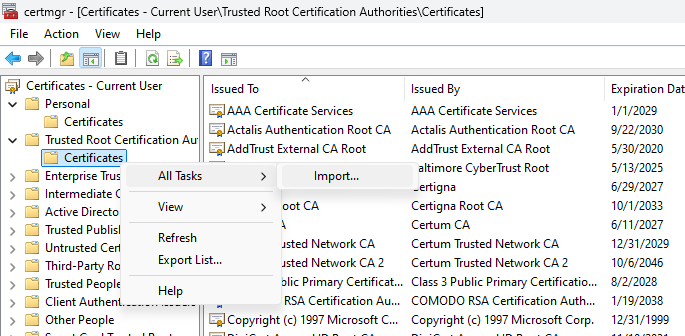Workstation config¶
2018
General aspect¶
f.Luxadds visual comfort to the display level. The tool regulates the amount of blue color automatically during the day.High resolution screen (4K) reduces visual fatigue.
For laptops, in the case of office applications, matte panel screens are preferred. *Each position must have an identifiable name.
Software¶
Office:
pdf : Gaaiho reader, Acrobat Reader, evince, PDFcreator, Pdf Stream Dumper, PDF blender (fusion de pdf)
djvu : DjView
epub : Adobe Digital Editions
Ghostscript
EPS : EPS Viewer
Word : libreOffice, MiKTeX, Texmaker, JabRef, Notepad++
Image processing : GIMP, Inkscape (SVG), Pencil
Personal accounting : MoneyManagerEX
AdminSys:
Cisco Packet Tracer
LiLi USB Creator
mRemoteNG, X2Go Client, Tera Term
VirtualBox
Unified Remote
Wireshark
Web clients:
ftp : FileZilla
browser : Opera, Chrome, Firefox
messaging : qTox, Skype, Slack
e-mail : Thunderbird
Dropbox, MEGAsync
Dev:
make, cmake
git
java, SWI-Prolog, NetLogo, R
Qt
Atom, NetBeans, Rstudio
IDA Pro free
pgAdmin
Music : audacity, LMMS, MuseScore, VLC
Data processing
GeoGebra
Gephi
logisim
QGis
CSVed
Security:
KeePass
Kleopatra
Backups¶
Data is backup every day to a remote file server. Incremental backup is preferred, it has the advantage of being the fastest. On the other hand, the restoration time is harder depending on the number of incremental backups carried out after a full backup. Please note that before traveling, a complete backup must be made. We use the command dar.
A complete backup of the DIR_SOURCE directory is performed. The backup is stored in the DIR_BACKUP directory. A hash of the backup is calculated.
dar -R DIR_SOURCE -c DIR_BACKUP/NAME_BACKUP-000-full-$DATE --hash md5 -q
To make a complete backup of the DIR_SOURCE directory on the remote server 127.0.0.1 using the ssh protocol. The destination directory is SSH_BACKUP_PATH.
SSH_BACKUP_LOGIN=user@127.0.0.1
dar -R DIR_SOURCE -c - --hash md5 -q | ssh $SSH_BACKUP_LOGIN "cat > $SSH_BACKUP_PATH/$NAME_BACKUP-full-$DATE.1.dar"
Integrity¶
For directories that change little over time, it is recommended to hash the files to verify their integrity, as physical media degrades over time and file system error detection and correction programs have variable effectiveness. By combining this with multi-media backup (SSH, HDD, optical disk, or magnetic tape), data loss can be minimized. Each storage medium has different physical constraints and degradation times, so the probability of all media failing at the same time is lower the more different types of media are used.
Password management¶
All passwords must be saved in an encrypted file. If the file is stolen, the hacker will have more difficulty learning the passwords. Because passwords are saved to a file, they can be longer and more complex. Authentications are more secure. We use double authentication to access passwords: by file containing random characters and by passwords. The password manager KeePass is suitable for this job.
Password management is organized into three levels:
very sensitive and little used like bank passwords,
sensitive and used as site login passwords,
client passwords, widely used, access to servers, applications, etc…
KeePass : https://keepass.info/
Blacklist : hosts¶
In order to reduce advertisements and malicious sites, sites offer blacklists blocking similar domain names. The files must therefore be completed:
linux :
/etc/hostswindows :
C:\Windows\System32\drivers\etc\hosts
See : https://someonewhocares.org/hosts/
To add as a browser plug-in:
uBlock Origin
Setting up a proxy¶
Download and install Squid (http://squid.diladele.com/#home)
Domain blacklist¶
Edit the /etc/squid/squid.conf file and add the following settings:
acl domain_blacklist dstdomain "/etc/squid/domain_blacklist"
http_access deny all domain_blacklist
Create the /etc/squid/domain_blacklist.txt file and add the domains you want to block. For example, to block access to example.com including subdomains and to block example.net add:
.example.com
example.net
Restart the server, the
domain_blacklistfile must not be empty.
Firewall on Linux¶
Deprecated
Installation of the iptables-persistent package for automatic implementation of iptables settings at startup.
apt install iptables-persistent
Addition of basic rules in iptables for IPv4:
# Loopback
iptables -A INPUT -d 127.0.0.0/8 -j ACCEPT
# Authorization of new connections from the machine and not from outside
iptables -A INPUT -m state --state ESTABLISHED,RELATED -j ACCEPT
iptables -A OUTPUT -m state --state NEW,ESTABLISHED,RELATED -j ACCEPT
iptables -P INPUT DROP
iptables -P OUTPUT DROP
iptables -P FORWARD DROP
In order to make the rules added in iptables permanent, they are saved in the rules.v4 file
iptables-save > /etc/iptables/rules.v4
ip6tables-save > /etc/iptables/rules.v6
Addition of basic rules in iptables for IPv6:
# Loopback
ip6tables -A INPUT -d ::1/128 -j ACCEPT
# Authorization of new connections from the machine and not from outside
ip6tables -A INPUT -m state --state ESTABLISHED,RELATED -j ACCEPT
ip6tables -A OUTPUT -m state --state NEW,ESTABLISHED,RELATED -j ACCEPT
In order to make the rules added in ip6tables permanent, they are saved in the rules.v4 file
Le service peut ensuite être démarrer
service netfilter-persistent start
Example of rules:
#SSH
iptables -A INPUT -p tcp --dport 22 -j ACCEPT
iptables -A INPUT -p tcp --dport 1723 -j ACCEPT
iptables -A INPUT -p tcp --dport 443 -j ACCEPT
#SAMBA
iptables -A INPUT -p udp -s 192.168.1.0/24 -d 192.168.1.198/32 -m udp --dport 137 -j ACCEPT
iptables -A INPUT -p udp -s 192.168.1.0/24 -d 192.168.1.198/32 -m udp --dport 138 -j ACCEPT
iptables -A INPUT -m state -s 192.168.1.0/24 -d 192.168.1.198/32 --state NEW -m tcp -p tcp --dport 139 -j ACCEPT
iptables -A INPUT -m state -s 192.168.1.0/24 -d 192.168.1.198/32 --state NEW -m tcp -p tcp --dport 445 -j ACCEPT
#HTTPS
iptables -A INPUT -p tcp -s 192.168.1.198/32 -d 192.168.1.198/32 --dport 80 -j ACCEPT
iptables -A INPUT -p tcp -s 192.168.1.198/32 -d 192.168.1.198/32 --dport 443 -j ACCEPT
#Proxy
iptables -A INPUT -p tcp -s 192.168.1.198/32 -d 192.168.1.198/32 --dport 3128 -j ACCEPT
When an ssh server is installed on the machine, you must use a tool that prevents strong password brute-forcing such as denyHosts or fail2ban. This tool is useless when password authentication is disabled.
